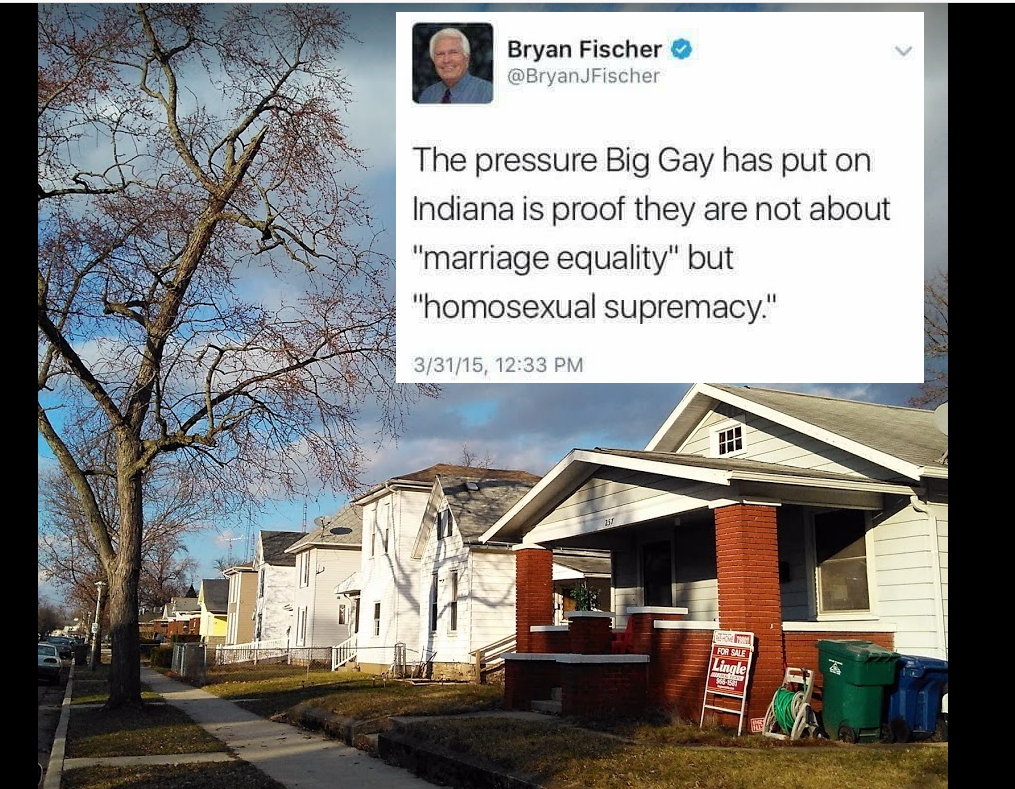Mostly, I vote by mail. I have voted in person twice—once, in a small town in Indiana where I was then teaching college, and two years later, in a Los Angeles neighborhood most Angeleños call “Skid Row” but have never explored on foot. At the time of the former election, Mike Pence was governor of the state and was celebrating his second major anti-LGBT victory, warranting Indiana bakeries to discriminate against customers on nebulous religious grounds. At the time of the latter, my immediate neighborhood was once again battling outbreaks of whooping cough and flesh-eating bacteria.
Nothing dramatic happened at either place. But maybe the contrast between the two says something something democracy something?
I drove to the polling place in Indiana in my 1984 Volkswagen Westfalia van which needed new brake shoes; it was pitch dark and very cold, having snowed and thawed recently, which was a little nerve-wracking even before I discovered that my nearest polling place had been cancelled. An hour later, arriving at a second, also totally unfamiliar corner of the town I’d lived in for less than 12 months, I couldn’t walk through the dark, full-and-yet-desolate parking lot without seeing two confederate flags (or without recalling he “HERITAGE NOT HATE” stitched into the confederate flag a neighbor hung across his biggest window and the KKK graffiti on another uninhabited house on my street). Once inside, I could smell Fabuloso, the cheapest brand of over-scented bleach that NAFTA could bring to this Tea Party stronghold; I could also smell the resentment of a mostly working-class, mostly white crowd standing in a coiling, 90-minute line to do a simple thing made slower and less simple by a staff of mostly septuagenarian volunteers who were not good with crowds. As time passed, I tried to make small-talk with the people ahead of me and behind me in line, keeping things apolitical and, ideally, free of gunplay. The person behind me, wearing a massive ZZ-Top beard and T-shirt, proved to be a colleague from the computer science department.
I went home feeling like I’d been in a slow-motion riot that had looted an abandoned building but found nothing worth stealing. Indiana stayed red but–thanks to an abysmal voter turnout–the city got a democratic mayor for the first time in decades.
Skid Row was a different scene—I seemed to step over fewer dirty syringes and rotting papayas than usual as I walked there, as if the events of the day had struck a busier, more optimistic mood. The polling place was in a Women’s Building that I’d never known my immediate neighborhood to be hiding, only three blocks away from where I made my coffee; it sat between the bleak government office of some social service and a giant mission, a block north of the stretch of San Pedro where the Bosch painting begins. I was only in that Women’s Building for some 10 or 12 minutes, and spatially as well as temporally, it was the exact opposite of the experience exactly a year prior. I missed the smell of Fabuloso when I got into the actual room in which I would vote: this smaller, more run-down lobby smelled more like a urinary tract infection than I thought an indoor space could smell, and I’ve been to some places. I’ll spare you the rest of my smell-memories, even though they’re most of what I retain from that day; I do remember taking a quick straw poll of who else was voting during my 4 or 5 minute wait in line, and realizing that a slim majority of the people voting at that particular moment were currently experiencing homelessness, among other disadvantages.
I can’t say how many of those homeless votes were effectively counted and registered, of course; but I felt a pang of something like pride at that moment: pride to be a Californian, an Angeleño, seeing all these volunteers calmly, humanely, magnanimously shrinking the percentage of people who wanted their votes counted but didn’t successfully vote. Whatever the opposite of voter suppression is (humanity?), there it was, in the inhumane lobby of the Women’s Building. Straining a little, I could overhear a poll worker very patiently going over names and measures, one by one and in a loudish whisper, with a severely developmentally disabled person who, I can say with confidence, would not have had her vote counted at the polling place I’d attended a year prior in a totally other America. I remember walking out of there and thinking, wow, what a difference 2,136 miles makes, and also, wow, I should be doing more in my immediate neighborhood. The poll workers were so normal and understanding and calm, dealing with such a diverse population of human beings in diverse states of stability and functionality–saints, in context.
Juan Caballero






